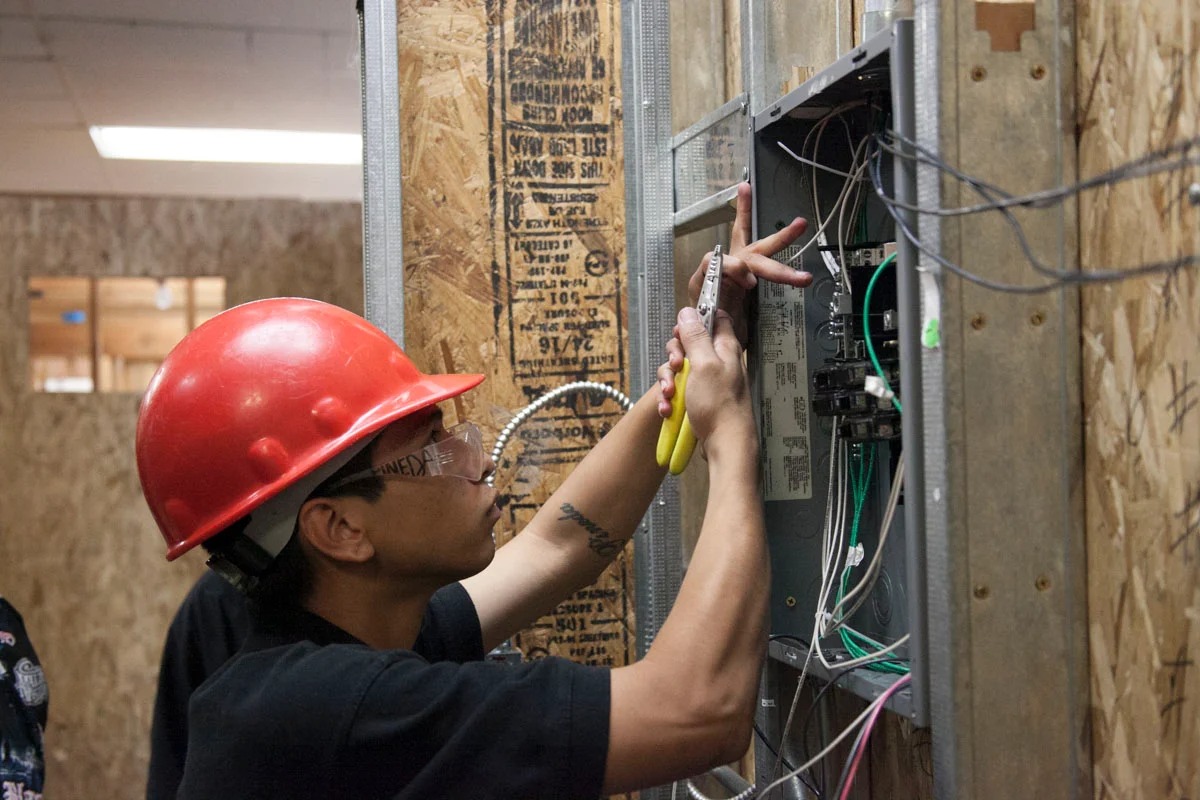Electrician apprenticeship Hawaii programs have become one of the most effective career-building opportunities for aspiring tradespeople in the islands. By enrolling in an electrician apprenticeship Hawaii program, students gain the perfect balance between classroom learning and real-world fieldwork. Unlike traditional academic settings, electrician apprenticeship Hawaii allows participants to earn while they learn, preparing them for the demands of the electrical trade with both theory and hands-on experience. Many employers prefer hiring graduates from electrician apprenticeship Hawaii programs because they are job-ready and capable of meeting industry standards. Another reason why electrician apprenticeship Hawaii is so popular is the direct pathway it creates toward licensure, certification, and long-term career growth. Participants learn electrical codes, safety practices, wiring techniques, and new technology in the classroom while applying those lessons in real work environments. The goal of electrician apprenticeship Hawaii training is to provide students with confidence, skills, and experience so they can thrive in residential, commercial, or industrial settings. With demand for electricians increasing across the state, completing an electrician apprenticeship Hawaii program offers a clear route to stability, income, and career satisfaction. For anyone committed to entering the trades, electrician apprenticeship Hawaii stands out as the smartest choice for blending technical education with hands-on application.
The Value of Combining Learning and Fieldwork
One of the strengths of electrician apprenticeship Hawaii programs is their structure, which integrates classroom instruction with field experience. Apprentices don’t just learn theories; they immediately apply knowledge under the guidance of licensed professionals. This combination ensures that lessons stick and prepares participants for the challenges of working on real projects. From reading blueprints to troubleshooting electrical systems, electrician apprenticeship Hawaii blends learning styles to create well-rounded professionals.
Classroom Training in Electrician Apprenticeship Hawaii
The classroom component of electrician apprenticeship Hawaii covers essential topics that every aspiring electrician must master. Students study electrical theory, safety regulations, wiring methods, blueprint reading, and national and state electrical codes. Classroom instruction also emphasizes mathematics, problem-solving, and emerging technologies such as renewable energy systems. These academic lessons provide the foundation that apprentices later apply in the field. By mastering technical knowledge first, participants in electrician apprenticeship Hawaii programs are better prepared for hands-on training.
Fieldwork Experience in Electrician Apprenticeship Hawaii
The fieldwork portion of electrician apprenticeship Hawaii programs is where apprentices gain the most practical experience. Under supervision, they install, maintain, and repair electrical systems in residential, commercial, and industrial projects. This real-world training allows apprentices to develop skills like wiring, conduit bending, troubleshooting, and working safely with tools and equipment. By rotating through different projects, apprentices gain exposure to diverse aspects of the electrical trade. Employers highly value this fieldwork component because it produces electricians who are confident and capable from day one.
Benefits of the Apprenticeship Model
The electrician apprenticeship Hawaii model offers multiple benefits compared to traditional education. Apprentices earn wages while training, which reduces financial pressure and allows them to avoid large student debt. They also gain valuable mentorship from seasoned electricians who guide them in both technical skills and professional development. Another benefit is job security—completing an electrician apprenticeship Hawaii program often leads to guaranteed employment with the sponsoring company or partner organizations.
Career Opportunities After Completion
Graduates of electrician apprenticeship Hawaii programs are well-positioned for advancement. After completing their training and passing licensing exams, they can work as journeyman electricians. Over time, many pursue further certifications, become master electricians, or start their own contracting businesses. With Hawaii’s growing need for skilled labor in areas like construction and renewable energy, the demand for electricians continues to rise. Completing an electrician apprenticeship Hawaii program ensures long-term career growth and stability in a respected trade.
Why Choose Us
When selecting an electrician apprenticeship Hawaii program, choosing the right training provider is essential. Our program is designed to give students the strongest foundation by balancing classroom instruction with extensive fieldwork. We work closely with industry professionals to ensure training matches current workforce needs. Our instructors are highly experienced, offering personalized mentorship to every apprentice. We also help students connect with scholarships, employer sponsorships, and job opportunities, making the program accessible and rewarding. By choosing us, you join a supportive community dedicated to your success in the electrical trade.
FAQs About Electrician Apprenticeship Hawaii
1. How long does an electrician apprenticeship Hawaii program take to complete?
Most programs last about four to five years, combining classroom training with on-the-job learning.
2. Do electrician apprenticeship Hawaii programs pay apprentices?
Yes, apprentices earn wages while training, and their pay increases as their skills advance.
3. What kind of classroom subjects are taught in electrician apprenticeship Hawaii?
Apprentices study electrical theory, safety codes, wiring, blueprint reading, and new technologies.
4. Is fieldwork required in all electrician apprenticeship Hawaii programs?
Yes, fieldwork is a core part of training, providing apprentices with essential hands-on experience.
5. What career paths can graduates of electrician apprenticeship Hawaii programs pursue?
Graduates can become licensed journeyman electricians, master electricians, or even start their own businesses.



